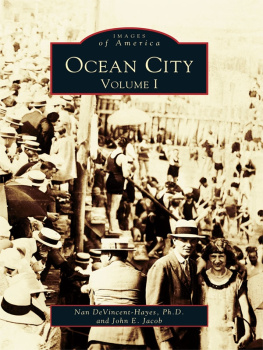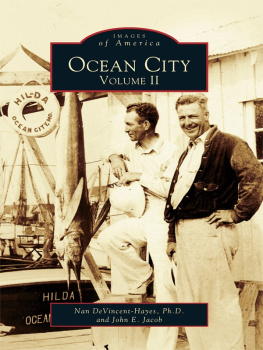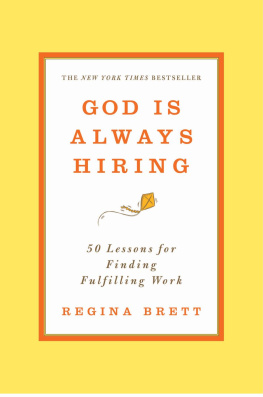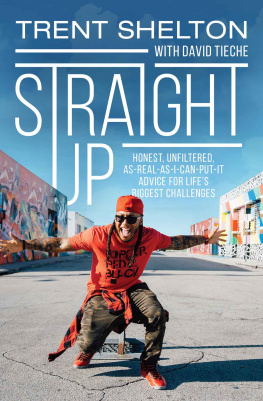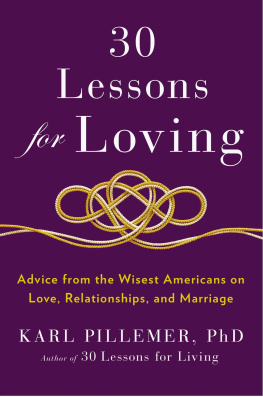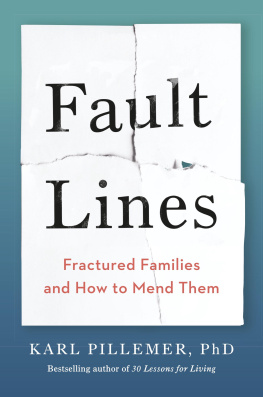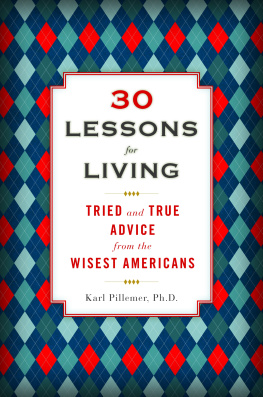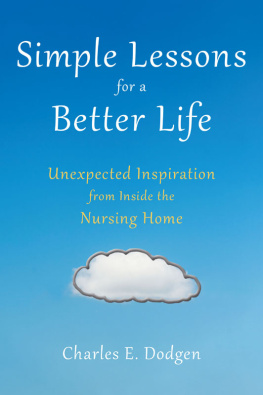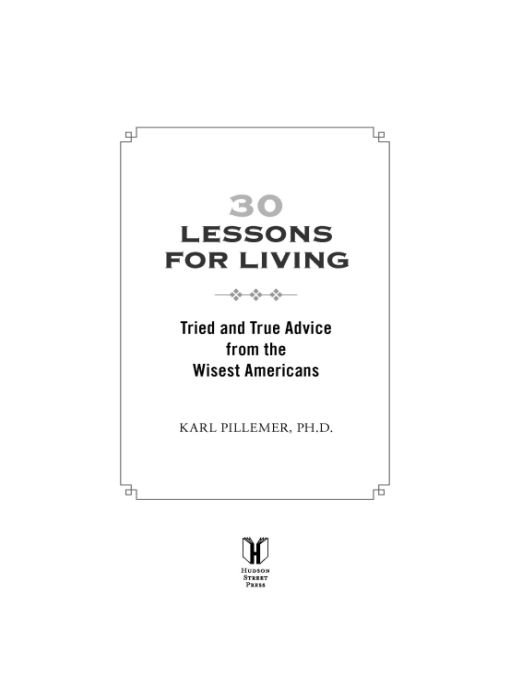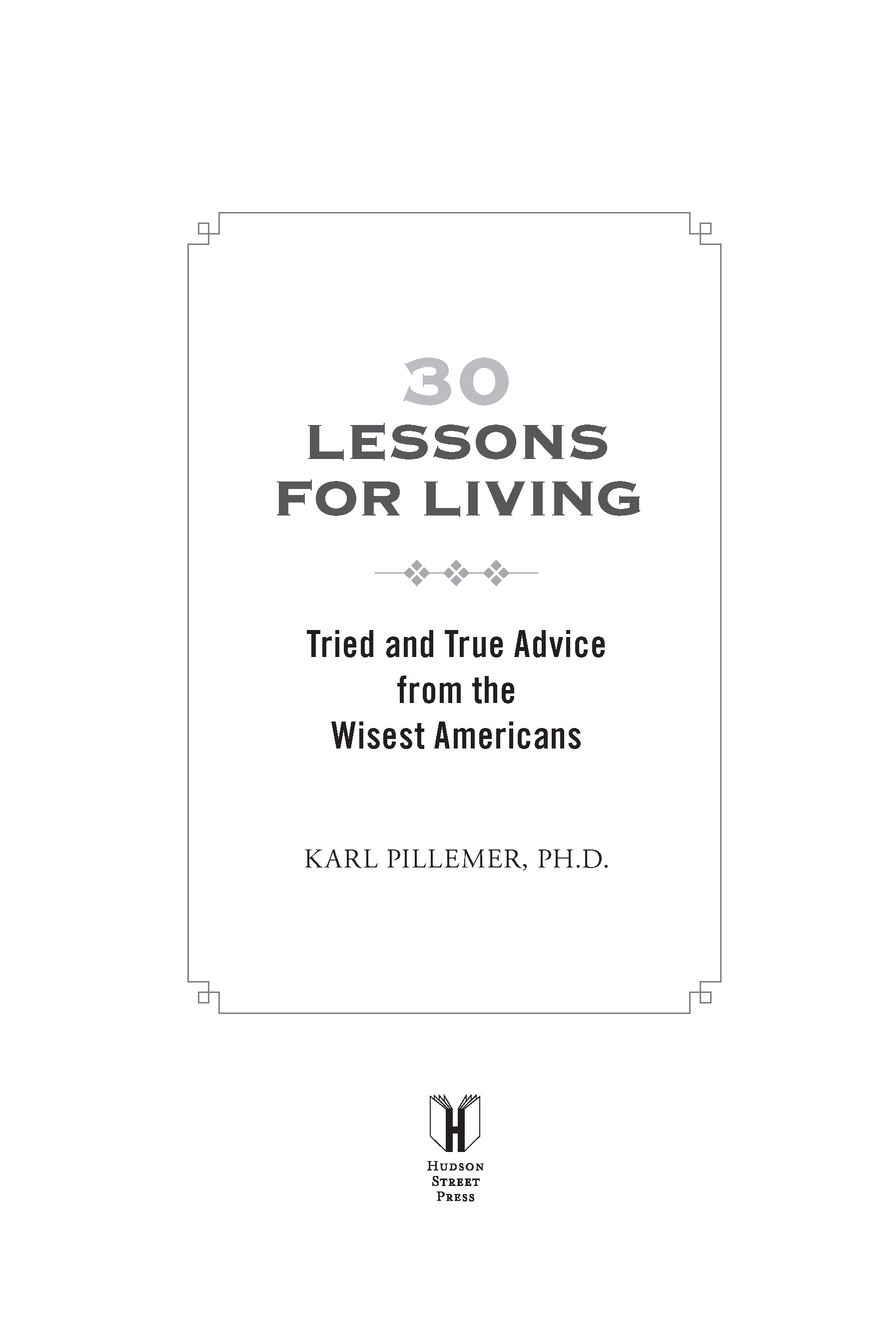Table of Contents
To Clare, Hannah, and Sarah, for teaching me my most important lessons for living
ACKNOWLEDGMENTS
THIS PROJECT TOOK PLACE over five years and involved collecting information from more than a thousand older Americans. Over that period of time, I received invaluable help, support, and encouragement from a large number of individuals and organizations. It is a pleasure to acknowledge them here.
I am most indebted to those I call in this book the experts on living, the people who donated their time and their thoughts freely and openly. There is no way to repay them for providing the raw material on which this book is based; I can only hope that I have conveyed their lessons for living as they would have wanted it done.
I am very grateful to the individuals who assisted in collecting the data. The Cornell University Survey Research Instituteled by Yasamin Miller, director, and Darren Hearn, managerwas a joy to work with. Special thanks are due to interviewers Vanessa Mc-Caffery, Chris Dietrich, Chelsea Fenush, and Curtis Miller, who cheerfully unlearned the rules of standardized survey research to have deep and intimate conversations with the interviewees, laughing and sometimes crying with them. Linda Finlay also conducted a number of in-depth interviews and contributed important insights throughout the project. Leslie Schultz carried out many complex management tasks, keeping the interviews and data files organized and easy to use.
I am indebted to past and present members of my research team who assisted in identifying interviewees, transcribing interviews, providing ideas, coding, and related tasks: Dr. Myra Sabir, Helene Rosenblatt, Emily Parise, Mimi Baveye, Dr. Rhoda Meador, Esther Greenhouse, and Noreen Rizvi, as well as the Cornell undergraduates who conducted pilot interviews for the study.
I would like to thank the many individuals and organizations who sought out and nominated elders for interviews. Dr. Kevin ONeil and Sara Terry of Brookdale Senior Living produced, from their communities across the country, an extraordinary set of interviewees for the project. Dr. Mark Lachs and Dr. Cary Reid of the Division of Geriatrics and Gerontology at the Weill Cornell Medical College introduced me to interesting New Yorkers, as did Mary Ballin of the Irving Sherwood Wright Center on Aging. I am also grateful to the following individuals at the New York City senior centers that assisted with the project: Josie Piper, Central Harlem Senior Citizens Coalition; Chan Jamoona and Vidya Jamoona, United Hindu Cultural Council Senior Center; Julia Schwartz-Leeper, Riverdale Senior Services; Nancy Miller, Visions/Services for the Blind and Visually Impaired; and Bill Dionne, the Carter Burden Center for the Aging. They taught me an important lesson about aging: support your local senior center!
Other individuals provided excellent suggestions for interviewees. My undergraduate mentor, gerontologist Ruth Harriet Jacobs, offered not only advice on the book but a number of excellent interviewees. Rosalie Muschal-Reinhardt and Elly Katz pointed me toward interviewees involved in Sage-ing activities. David Pomeranz from the Hebrew Home for the Aged at Riverdale introduced me to a number of residents there. Staff from the Office for the Aging in a number of New York counties and the Cornell Cooperative Extension system helped in the search for the wisest elders.
Several individuals provided invaluable help by reviewing all or part of the manuscript. Peter Wolk and Risa Breckman far exceeded the duties of friendship by providing invaluable feedback at critical stages. Sheri Hall offered many insightful comments throughout the writing process.
I am immensely grateful to my agent, Janis Donnaud, who several years ago listened to a semicoherent phone call about my idea and told me that, yes, she did think there might be a book in there somewhere. Without her assistance, 30 Lessons for Living would never have seen the light of day. I would also like to acknowledge my editor at Hudson Street Press, Caroline Sutton, whose insightful comments made the book much better.
Finally, writing this book proved to be a family affair to a greater extent than I had anticipated, from reading the manuscript to offering opinions on production details. My wife, Clare McMillan, lent both her extraordinary editorial skills and her unflagging support to the project. My daughters, Hannah Pillemer and Sarah Pillemer, and son-in-law, Michael Civille, read drafts and provided me with young peoples perspectives on the lessons. I am also blessed with an extended family that includes people with many areas of expertise relevant to the book, including two physicians, a research dietician, a family therapist, and a developmental psychologist. For lengthy discussions as well as willingness to listen to my angst when needed, I am grateful to David Pillemer, Stephen Pillemer, Eric Pillemer, Jane Pillemer, Helen Rasmussen, and Julianna Pillemer.
A NOTE ON NAMES
ALL NAMES USED IN this book are pseudonyms and any resemblance to those of actual persons, living or dead, is entirely coincidental. Most names were created using a random name generator (yes, there is such a thing). In fact, one way to be absolutely certain that you are not in this book is to find your name mentioned in it.
CHAPTER 1
Who Are the Wisest Americans and What Can They Tell Us?
FINDING THE RIGHT MATE and staying happily married for your whole life. Raising children who turn out well and enjoy your company. Discovering work you love. Growing older gracefully and without anxiety. Avoiding major regrets. Reaching the end of life with a sense of completion and fulfillment. This may sound like a wonderful prescription for a life well lived. But where can we find the guidance we need to accomplish these goals in our lives?
If you picked up this book because the title caught your eye, youve probably asked yourself that question. And my goal in writing it has been to provide you with concrete, practical advice about how to make the most of your life in precisely those ways. But first I need to let you know who these wisest Americans are and what kind of a guide this is. As you will see, its different from any kind of advice book youve read before. Thats because it taps a unique source that has been around for millennia but is almost forgotten in contemporary society.
Americans seek advice with an appetite that seems to be insatiable. We watch televised experts in the hope of finding solutions to interpersonal problems, financial woes, and sexual dysfunction. We read advice columns and go to seminars. We consult selfimprovement websites. And we buy books. There are more than thirty thousand self-help titles in print in the United States today, and its estimated that Americans will spend close to one billion dollars buying them this year.
Let me make a confession: I am something of an advice junkie myself. I am the kind of person who goes directly to the self-help aisle in the megabookstore. For almost every topic I am interested in, you will find a relevant advice volume in my bookcase. My family has learned to ignore my reading aloud from the daily paper the latest tips on getting organized, reducing stress, investing for retirement, or whatever the problem of the day happens to be. I know Im not alone in these activitiesit seems like almost everyone is looking for answers to lifes complex questions.



